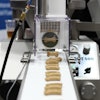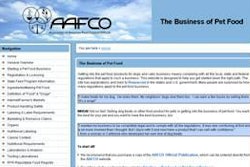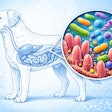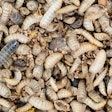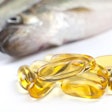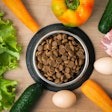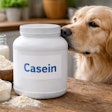Feline chronic gingivitis/stomatitis (FCGS) is a painful inflammatory disease in cats. Extraction of teeth, including all premolars and molars, has been shown to be the therapy of choice in cats not responding sufficiently to home care (e.g., toothbrushing) and/or medical treatment (corticosteroids and/or antibiotics).
In this study, we hypothesized that a cat food with an omega-6 polyunsaturated fatty acid (ω6 PUFA) to ω3 PUFA ratio of 10:1 reduces inflammation of FCGS and accelerates soft tissue wound healing of the gingiva after dental extractions, compared to a cat food with a ω6:ω3 PUFA ratio of 40:1. The cats were fed diets with chicken fat and fish oil as sources of fatty acids. In one diet, part of the fish oil was replaced by safflower oil, resulting in two diets with ω6:ω3 PUFA ratios of 10:1 and 40:1.
The study revealed that dietary fatty acids influence the composition of plasma cholesteryl esters and plasma levels of inflammatory cytokines. The diet with the 10:1 ratio lowered PGD2, PGE2 and LTB4 plasma levels significantly, compared to the diet with the 40:1 ratio. However, feeding diets with dietary ω6:ω3 PUFA ratios of 10:1 and 40:1 to cats with FCGS for four weeks after extraction of all premolars and molars did not alter the degree of inflammation or wound healing.
Source : R.J. Corbeel et al., 2011. Inflammation and wound healing in cats with chronic gingivitis/stomatitis after extraction of all premolars and molars were not affected by feeding of two diets with different omega-6/omega-3 polyunsaturated fatty acid ratios. JAPAN online July 2011. doi: 10.1111/j.1439-0396.2011.01195.x

